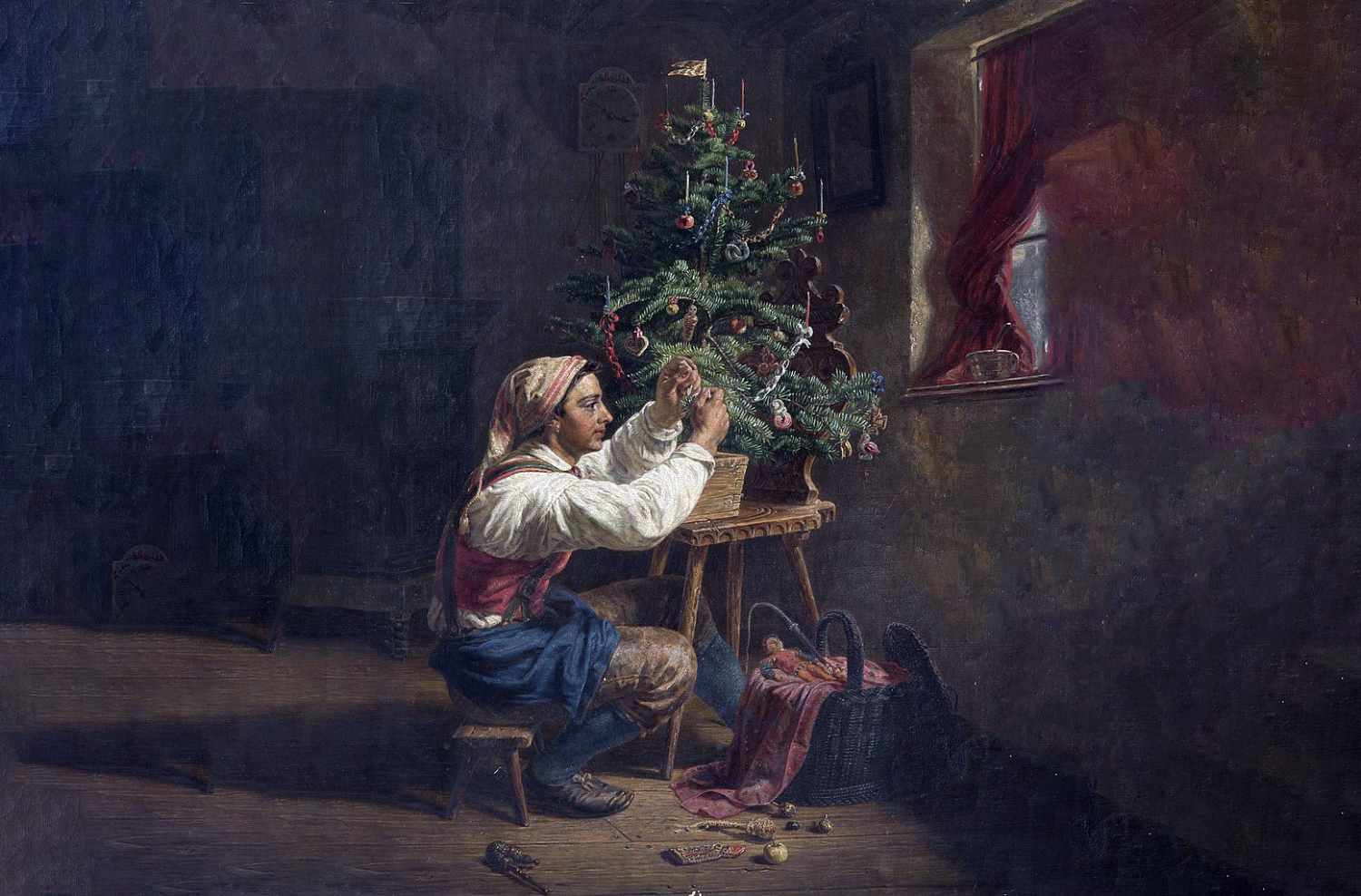Unveiling The Roots Of Christmas: A Journey Through Etymology And Tradition
Unveiling the Roots of Christmas: A Journey Through Etymology and Tradition
Related Articles: Unveiling the Roots of Christmas: A Journey Through Etymology and Tradition
Introduction
In this auspicious occasion, we are delighted to delve into the intriguing topic related to Unveiling the Roots of Christmas: A Journey Through Etymology and Tradition. Let’s weave interesting information and offer fresh perspectives to the readers.
Table of Content
Unveiling the Roots of Christmas: A Journey Through Etymology and Tradition

The word "Christmas" carries with it a weight of history, tradition, and cultural significance. Its origins, however, are not as straightforward as one might initially assume. A deeper exploration reveals a fascinating journey through languages, cultures, and beliefs, ultimately leading to the celebration we know today.
From Ancient Origins to Christian Adoption:
The origins of the festive season celebrated as Christmas can be traced back to ancient pagan festivals marking the winter solstice, a time when the days begin to lengthen after the shortest day of the year. In Rome, the festival of Saturnalia, dedicated to the agricultural god Saturn, was celebrated with feasts, gift-giving, and revelry. Similarly, in Germanic cultures, Yule, a festival honoring the god Odin, involved feasting, bonfires, and the bringing in of evergreen trees.
These pagan celebrations, with their focus on light, rebirth, and feasting, provided a fertile ground for the adoption of the Christian holiday of Christmas. The early Church, faced with the challenge of converting pagans, sought to integrate existing traditions into their own beliefs. This strategy aimed to make Christianity more appealing and accessible to the populace.
The Birth of "Christmas":
The word "Christmas" itself is a direct reflection of this blending of cultures and beliefs. It derives from the Old English phrase "Cristes mæsse," meaning "Christ’s Mass." This phrase, in turn, is a combination of "Crist," the Old English word for "Christ," and "mæsse," meaning "mass," a liturgical celebration in the Christian tradition.
The adoption of the term "Christmas" reflects the Christianization of the winter solstice celebrations. The birth of Jesus Christ, believed to have occurred around the winter solstice, became the central focus of the holiday, replacing the pagan deities and rituals with Christian symbolism and meaning.
The Evolution of a Word:
Over the centuries, the word "Christmas" underwent a gradual evolution. The Old English "Cristes mæsse" transformed into the Middle English "Cristesmasse" and eventually into the modern English "Christmas." This linguistic evolution reflects the broader cultural shifts and transformations that occurred in England, with the language adapting to the changing times.
The Global Reach of Christmas:
Today, Christmas is celebrated worldwide, transcending linguistic and cultural boundaries. While the word "Christmas" itself is primarily used in English-speaking countries, the holiday has been translated and adopted in various languages. In Spanish, it is "Navidad," in French "Noël," and in German "Weihnachten," each reflecting the unique cultural nuances and linguistic traditions of each region.
The Enduring Significance of "Christmas":
The word "Christmas" encapsulates the essence of the holiday: a time for celebration, family, and reflection. It evokes images of decorated trees, twinkling lights, festive meals, and the exchange of gifts. This rich symbolism, deeply ingrained in our collective consciousness, contributes to the enduring appeal and significance of Christmas across cultures and generations.
FAQs:
1. What is the origin of the word "Christmas"?
The word "Christmas" derives from the Old English phrase "Cristes mæsse," meaning "Christ’s Mass." This phrase combines "Crist," the Old English word for "Christ," and "mæsse," meaning "mass," a liturgical celebration in the Christian tradition.
2. How did Christmas become associated with the winter solstice?
The early Church, seeking to convert pagans, integrated existing winter solstice celebrations into their own beliefs. The birth of Jesus Christ, believed to have occurred around the winter solstice, became the central focus of the holiday, replacing pagan deities and rituals with Christian symbolism and meaning.
3. What is the significance of the word "Christmas"?
The word "Christmas" encapsulates the essence of the holiday: a time for celebration, family, and reflection. It evokes images of decorated trees, twinkling lights, festive meals, and the exchange of gifts. This rich symbolism contributes to the enduring appeal and significance of Christmas across cultures and generations.
Tips for Understanding Christmas Word Origins:
- Explore etymology: Delve into the origins of the word "Christmas" and its evolution through different languages and cultures.
- Study historical context: Understand the historical and cultural factors that influenced the adoption and transformation of the word.
- Compare and contrast: Explore how Christmas is celebrated and understood in different parts of the world, paying attention to linguistic and cultural variations.
- Reflect on symbolism: Consider the symbolism associated with the word "Christmas" and its impact on our understanding and experience of the holiday.
Conclusion:
The word "Christmas" is a testament to the power of language to shape and reflect cultural evolution. From its roots in ancient pagan festivals to its adoption by the Christian Church, the word has undergone a fascinating journey, reflecting the merging of traditions and the enduring appeal of celebrating light and rebirth during the winter solstice. As we celebrate Christmas today, we can appreciate the rich history and cultural significance embedded within this simple word, a word that resonates with joy, tradition, and the spirit of togetherness.
![History of Christmas Traditions [Infographic]](https://infographicjournal.com/wp-content/uploads/2012/11/chirstmas-traditions-history.jpg)
![History Of Christmas Traditions [Infographic] Pretty Opinionated](http://www.prettyopinionated.com/wp-content/uploads/2016/12/History-of-Christmas-Traditions-a-680x1257.jpg)






Closure
Thus, we hope this article has provided valuable insights into Unveiling the Roots of Christmas: A Journey Through Etymology and Tradition. We thank you for taking the time to read this article. See you in our next article!
Leave a Reply